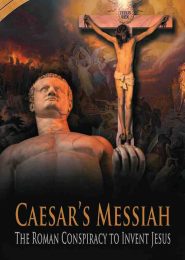Top Ten (Failed) Proofs for God’s Existence (2011)
Top Ten (Failed) Proofs for God’s Existence is a documentary that takes viewers on a journey through some of the most notable attempts to prove the existence of God.
From ancient philosophical arguments to modern scientific hypotheses, the film dives into the complexities of these proofs, exploring their strengths and weaknesses.
One of the most compelling proofs discussed in the documentary is the Argument from Design, also known as the Teleological Argument.
This argument suggests that the complexity and order observed in the universe are evidence of an intelligent designer, namely God.
However, critics point out that this argument relies heavily on analogy and anthropomorphism, making it susceptible to criticism.
Another failed proof examined in the documentary is the Ontological Argument, famously proposed by philosopher Anselm of Canterbury. This argument posits that the very concept of God implies his existence, as the greatest conceivable being must exist in reality.
However, critics argue that existence is not a predicate and that the Ontological Argument fails to provide empirical evidence.
The documentary also explores the Cosmological Argument, which seeks to establish the existence of God based on the existence of the universe itself.
Variations of this argument have been presented throughout history, including the famous Kalam Cosmological Argument.
Critics of this proof raise questions about the assumptions regarding causality and the nature of time.
One of the more modern attempts to prove God’s existence discussed in the film is the Argument from Consciousness. This argument suggests that the existence of consciousness is evidence of a transcendent source, namely God.
However, critics argue that this argument relies on subjective experiences and fails to provide objective evidence.
Throughout the documentary, viewers are presented with various philosophical, theological, and scientific perspectives on the existence of God.
From the ontological musings of Descartes to the contemporary insights of thinkers like Richard Dawkins, the film offers a comprehensive exploration of the topic.
Despite the failure of these proofs, the documentary acknowledges the ongoing quest for meaning and purpose in a world that often seems devoid of both.
Whether through religion, philosophy, or science, humans continue to seek answers to the fundamental questions of existence.
In conclusion, Top Ten (Failed) Proofs for God’s Existence serves as an examination of humanity’s enduring search for meaning in a universe that remains as enigmatic as ever.
By diving into the intricacies of failed proofs, the film encourages viewers to contemplate the nature of belief, knowledge, and skepticism in the face of life’s greatest mysteries.




